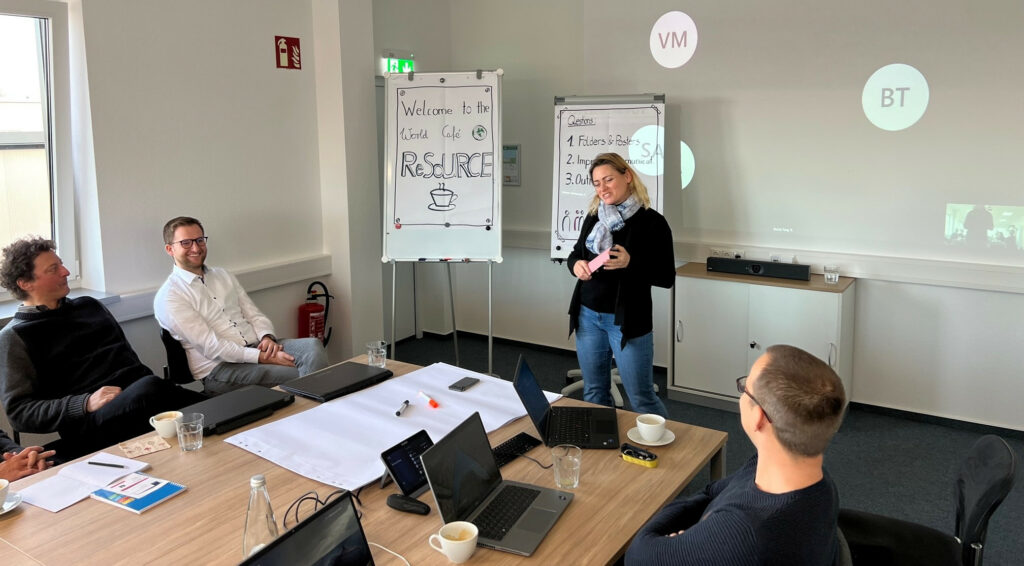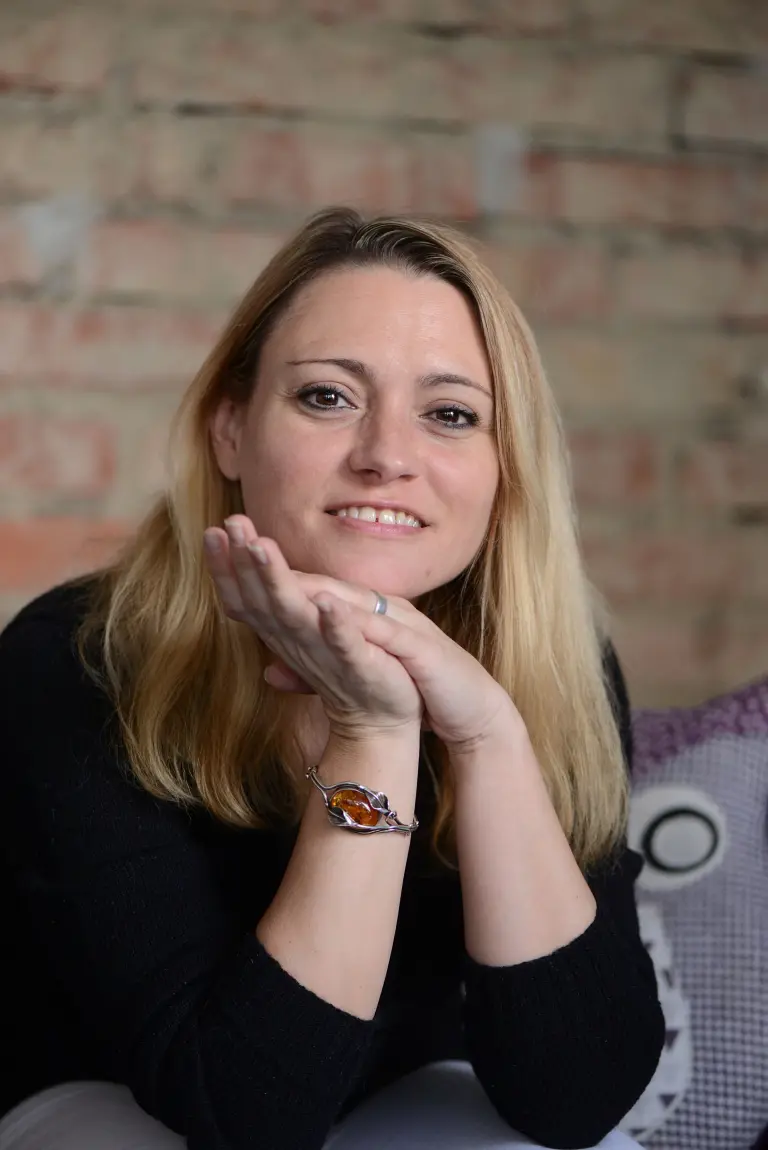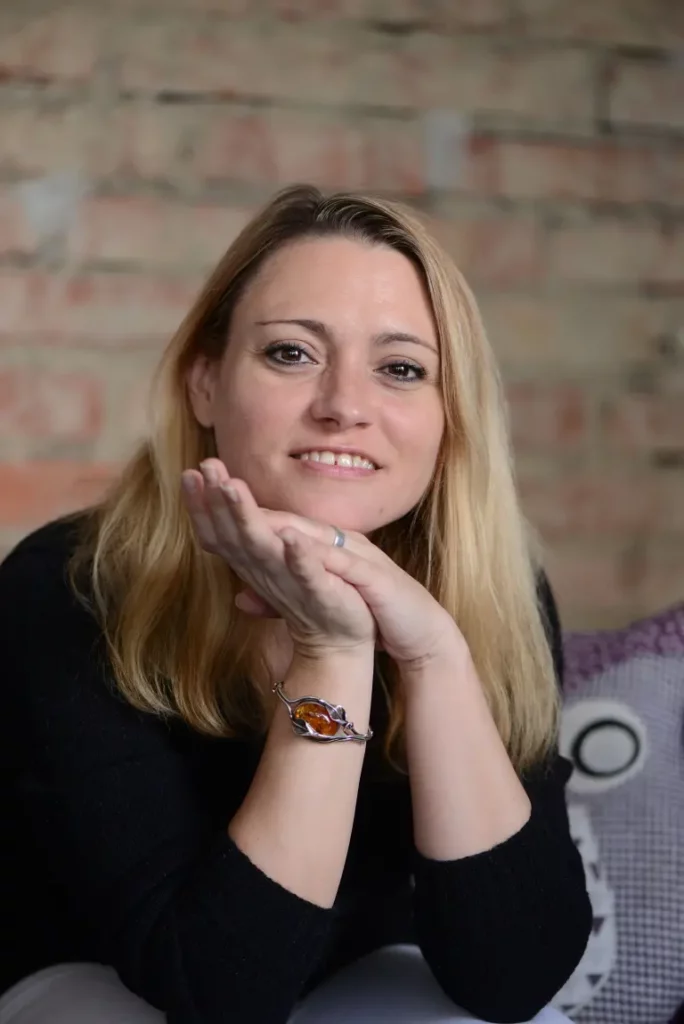The World Café at our Team Meeting in Aachen

Working as a team located in five different countries has its challenges. One of them is for sure that you don’t have an opportunity to hang out together and chat. It might sound a little superficial but when you think about it: when do you have the most impactful conversations? After a presentation during the regular discussion time or rather during coffee break? And do you have these with large groups or rather in a smaller circle? In my experience, it is often the later. And that’s why I really like a specific moderated discussion format: the world café.
The world café method was invented for larger group discussions. The principle is simple. At first, you define some questions. For our world café during the team meeting in Aachen, I prepared 3. Then you divide the participants in different groups. Each group is gathering at one table – usually with some coffee and biscuits to create a relaxing atmosphere. Each table is given the task to discuss one of the questions during a limited timeframe. I like to give them 15 to 20 minutes. In this time, they are asked to note their thoughts on a flip chart paper. When the time is up, the participants move on to another table and discuss another question. They are encouraged not to switch as a whole group as they shall mix as much as possible. One of the participants remains seated at each table for at least one time slot. This “host” informs the new group at the beginning of the next time slot about the former discussion as it is unlikely that the first group managed to document all the aspects on the poster. After three time slots, the last host presents the poster to the whole group and together we might even develop some new ideas.
In our meeting in Aachen, we discussed which folders and posters we need to create, as this was promised in the project proposal. We were not too sure anymore if we’d really need some. But since they, like other dissemination tools have been defined in the project proposal, it is necessary to create them or at least come up with a strong argument why we wouldn’t need them. I have to admit that after the world café, we now have much better reasons for creating them than just “because it’s in the proposal “. We had some really nice ideas regarding the design and content that we will share with you here in our blog soon.
Another topic that we discussed was how to improve our communication. It was not specified if this question aims at the internal or the external communication. I kept the phrasing vague, because I wanted to see on what the group would like to focus. They chose both and discussed amongst other how to increase our number of LinkedIn followers even further although we are already close to double the number of followers that we promised to achieve in the project proposal by the end of the ReSoURCE project. In our internal communication we figured out that we should have a fix timetable and ideally one specific day of the week for all our meetings.
The third questions focused on material for outreach. Whilst I only thought about educational tools and program materials for public events or trade fairs, our scientist took a much broader approach and included peer reviewed papers and scientific conferences.
It was really interesting to see them mixing up so smoothly and bringing in their quiet different perspectives. I’m looking forward to reflecting on it all a little further when I write a brief summary about it, so we can make sure that the outcome of our discussions will be paid attention to when we proceed with our folders and posters, our outreach tools and of course our internal and external communication.

Author’s Portrait
Carmen Loew
Carmen Loew, Magistra Artium, is the project ReSoURCE’s science communicator. She studied Archaeology at the Universities of Saarbrücken and Bamberg and managed projects in research and rescue archaeology in Germany and France before she focused on science communication in 2015. She is a certified PR manager, Fundraising manager, Marketing & Sales assistant, and cultural educator. Her (research) interests are science communication and outreach, crisis communication as well as intercultural communication.
Partner

